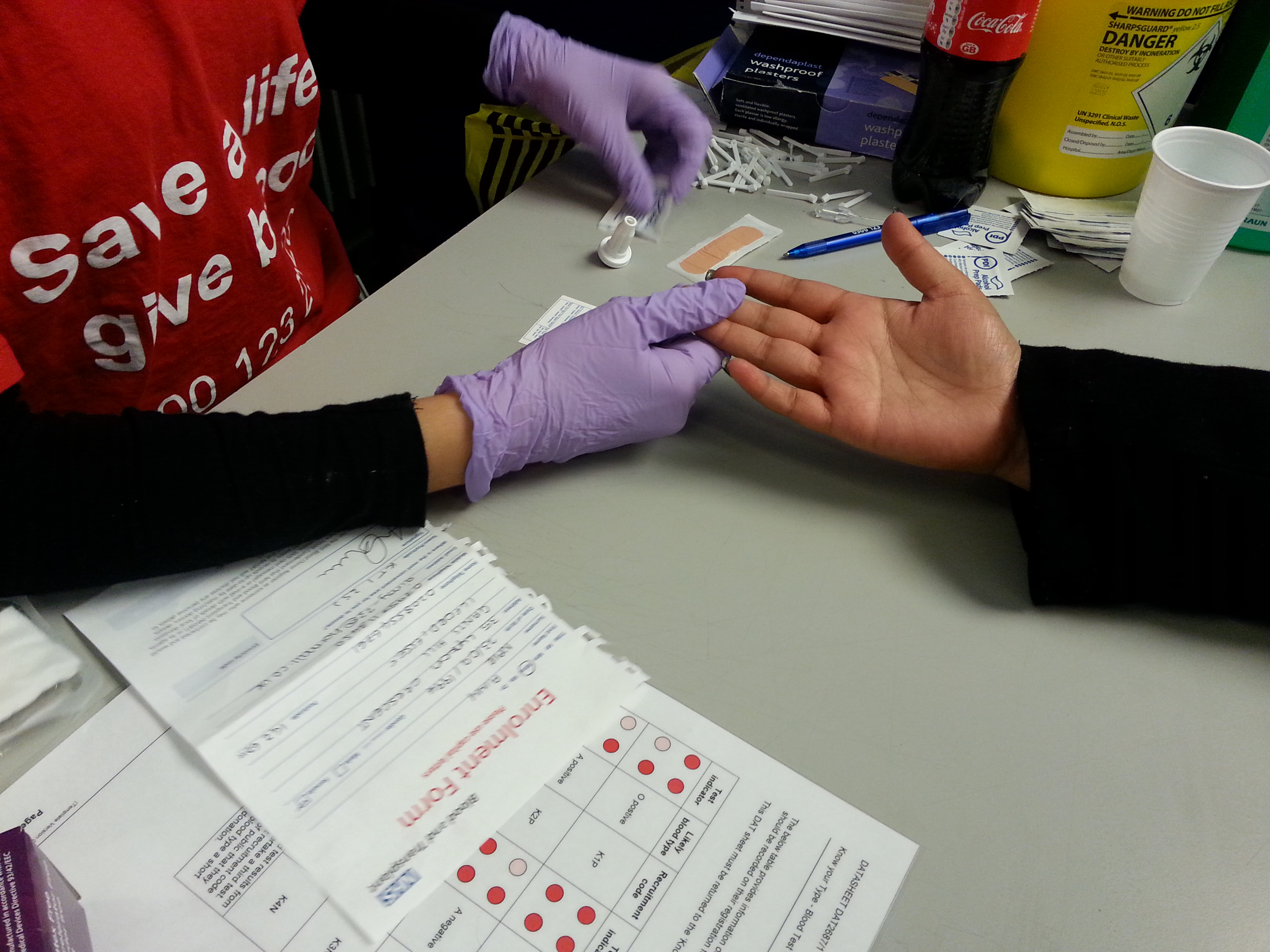By: Hanne Olsen & Elin Martinsen
Kingston is the first university to be visited by NHS Blood and Transplant (NHS BT), who hope to encourage more young people to donate blood.
The mobile unit set up near the main entrance on Penrhyn Road and offered to check students’ blood types, encouraging them to visit their local clinic for blood donation.
“It is important to know your blood type and donate blood,” said Linda Finn, Marketing assistant at NHS Blood and Transplant. “There’s always a need for blood.”
NHS BT is rolling out the offer to the rest of the country over the next few months, ending in March.
Finn said they were pleased to see that so many students had shown an interest in learning more about blood donation.
“There has been a non-stop line all day of students keen to find out their blood type and wanting to help out,” she said.
Waleed Hussain, 20, Civil Engineering, was one of the students who wanted to check his blood type, mainly out of curiosity.
“I don’t think I will give blood, because I haven’t really thought about it,” Hussain said.

Aimy Nair, 20, Maths, has always wanted to give blood, but did not know how the procedure worked.
“I don’t think it’s advertised well enough,” she said. “That’s why I think it’s great that the NHS goes around to different campuses, because it’s easy to access for people.
“Some people can’t ask for blood, so it’s great to offer it to help them.”
Amna Nasir, 18, psychology, found that her blood type was B negative by taking the test.
“It’s important to know in order to give blood, because different people have different blood types,” she said.
Type O negative is the most common blood type among UK blood donors, with 36 per cent, according to NHS BT.
Most people can give blood, but there are some exceptions. People who have had a tattoo or skin piercing in the past four months before donation are not accepted as donors, for example.
Also, a man who has had sex with another man without a condom would be deferred from blood donation for 12 months.
If you are considering donating blood, visit www.blood.co.uk for more information.


Very informative post, i am regular reader of your blog. I noticed that your blog is outranked by many
other blogs in google’s search results. You deserve to be in top ten. I
know what can help you, search in google for:
Omond’s tips outsource the work